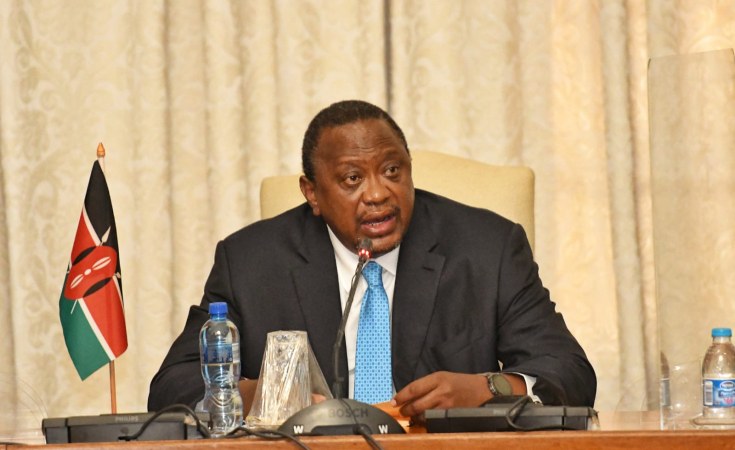Uhuru Kenyatta, Kenya's former president and facilitator of the East African Community-led peace process for DR Congo, on Tuesday, January 31, convened an urgent meeting with the bloc's technical team to review the worsening situation in the country's east.
The meeting was necessitated by the "deteriorating security situation in eastern DR Congo, particularly in Ituri and North Kivu provinces, where serious escalation of fighting and targeted killings is reported to be taking place," Kenyatta's office said in a statement.
Fighting broke out last week between the Congolese armed forces, FARDC, and the M23 rebels in North Kivu, forcing Kenyatta to express concerns about the broken cessation of hostilities, as demanded for in the Luanda and Nairobi peace processes.
After reports of ethnic violence targeted at the Hema community in Ituri and Banyamulenge in South Kivu, on January 24, UN special advisor on genocide prevention Alice Wairumu Nderitu, issued the second statement in less than three months warning of genocide in the country.
Since 2017, the Banyamulenge community has been a target of ethnic cleansing despite numerous petitions calling for the international community to intervene and stop the continued brutal killings in South Kivu Province.
Following Tuesday's consultation with the EAC technical advisors, in Nairobi, the facilitator called for calm and immediate cessation of hostilities.
Kenyatta "expressed deep concern to the serious violation of the Nairobi Principles and the Luanda Agreement" that was signed in November 2022. He also called for "urgent return to dialogue and consultation in order to promote trust and confidence among the parties to the conflict and alleviate suffering of people."
While the M23 rebels started implementing the resolutions of the Luanda summit by withdrawing from some of their positions, the Congolese government totally ignored the regional peace efforts.
Kenyatta called on regional leaders and the international community to lend their support to the regional efforts to restore peace and stability in eastern DR Congo.
By and large, the biggest roadblock to peace in the region is Kinshasa's refusal to implement existing roadmaps. The latter, which include the Luanda roadmap and the Nairobi process, demand that DR Congo disarm all armed groups and engage in dialogue toward a sustainable solution.
Instead, besides Kinshasa aligning itself with FDLR - a Rwandan genocidal militia formed by remnants of the perpetrators of the 1994 genocide against the Tutsi - the Congolese government also continued to alienate the M23 rebels, thereby reducing the prospects for peace.
In October 2022, Human Rights Watch reported that between May and August 2022, the Congolese army with a coalition of Congolese militia as well as the FDLR fought against the M23 rebels in North Kivu province.
The FDLR which is now integrated in the Congolese army poses an existential security threat to Rwanda and the region.
Human Rights Watch received credible information that Congolese army members from Tokolonga's 3411th regiment provided more than a dozen boxes of ammunition to FDLR fighters in Kazaroho, one of their strongholds in the Virunga National Park, on July 21. Two months earlier, dozens of FDLR and CMC/FDP fighters took part in a large counteroffensive with government soldiers in the area around Rumangabo and Rugari.
One FDLR fighter told Human Rights Watch that he witnessed four transfers of ammunition. "It's the government [troops] that would always provide us with ammunition," he said.
"They also gave us uniforms and boots."


